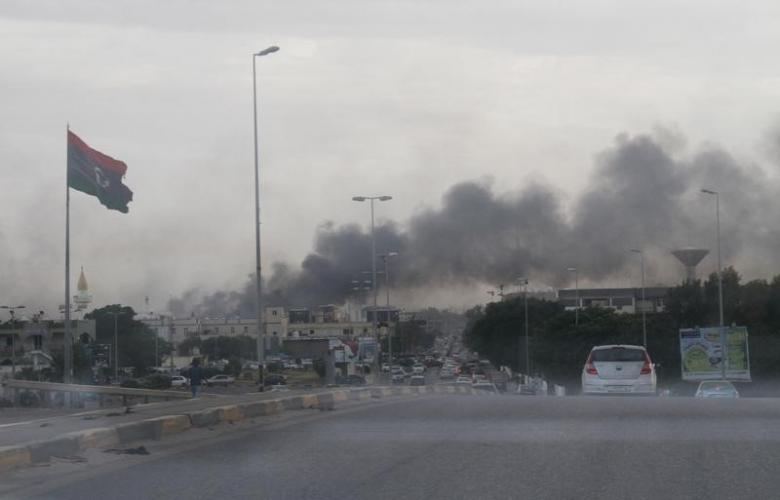Egyptian-Libyan borders, Cairo – Egypt stretched the scope of airstrikes against Libyan cities on Tuesday to reach extremists’ military bases in the central areas of Jafra and Hawn.
Egypt’s air force began the attacks earlier this week, just hours following an attack against civilians in the province of Minya, which led to the death of 29 people and the injury of others.
Libyan military commanders said Egyptian jets hit the Libyan city of Derna on Monday.
One air strike hit the western entrance to Derna and two others hit Dahr al-Hamar, south of the city.
Since the fall of Muammar Gadhafi’s regime, the African country has been witnessing the spread of extremist militant groups in different areas across the country, especially in the city of Derna, which is located near the Egyptian borders and represents a threat to the neighboring country’s security.
States supporting peace in Libya are currently seeking to forge an agreement between the country’s two major political leaders, Army Commander Khalifa Haftar and the head of the UN-backed presidential council, Fayez al-Sarraj.
While the recent strikes by the Egyptian army have raised concerns over the surge of angry Libyan reactions towards their neighbor, a senior tribal leader, Mahmoud Bou Issa, said that citizens in eastern Libya, including Derna, have voiced their support to Egypt, hoping that the airstrikes would put an end to the presence of extremist militants in the region.
According to Economic Researcher Ayman Ghazi, who lives in a nearby city, “there are many reasons to be optimistic about an economic recovery of the Libyan market, especially with Egypt’s airstrikes against extremists’ bases in the country.”
Ghazi added that several developments have indicated that the region would witness a positive change, including the recent visit of US President Donald Trump to Saudi Arabia and the outcome of the Riyadh summits, as well as the meeting between Haftar and Sarraj in the United Arab Emirates early May.
He also said that world powers have not yet opposed the Egyptian military operations in the African country, which has increased international businessmen trust in Libya’s economy and revived the value of the Libyan currency.
For Amro Farkash, Libyan economic expert and regional director at the European Bank, Egypt’s latest military operations were a “sort of breakthrough” in the Libyan crisis.
“People are optimistic that the situation can improve; this modest optimism can positively influence the currency,” he stated.
On a different note, Sarraj said on Tuesday that NATO Secretary General Jens Stoltenberg have expressed full support to the Libyan government, during a phone call between the two officials.
A statement issued by Sarraj’s office said that Stoltenberg has told the Libyan leader that NATO appreciated efforts to build a unified military institution in the country and that it would support Libya in strengthening its defense and security institutions.
